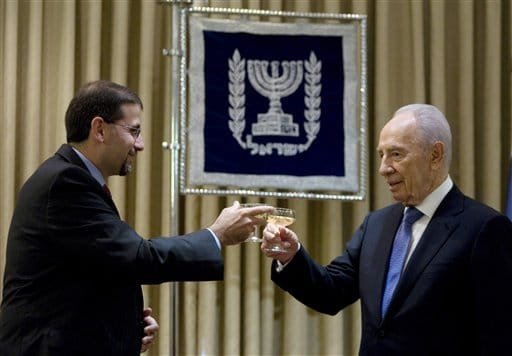
While many Americans may believe that US policies are designed to address American needs, America’s new Ambassador to Israel explains that this is far from the case.

by Alison Weir
In a recent speech before the Jewish People Policy Institute (JPPI), Ambassador Daniel Shapiro clarified what drives US policies:
“The test of every policy the Administration develops in the Middle East is whether it is consistent with the goal of ensuring Israel’s future as a secure, Jewish, democratic state. That is a commitment that runs as a common thread through our entire government.”
Shapiro went on to say: “This test explains our extraordinary security cooperation, our stand against the delegitimization of Israel, our efforts on Iran, our response to the Arab Spring, and our efforts on Israeli-Palestinian peace.”
It also explains a factor in the downward slide in American prosperity and standing in the world.
US funding of Israel and its weapons industry
Shapiro elaborated: ‘Israel will receive over $3 billion in U.S. funding for training and equipment in the coming fiscal year. This assistance allows Israel to purchase the sophisticated defense equipment it needs to protect itself, by itself, including the world’s most advanced fighter aircraft, the F-35 Joint Strike Fighter. Our assistance has also helped boost Israel’s domestic defense industry.”
On top of this, Shapiro pointed out, “Congress, at the request of President Obama, provided $205 million to accelerate production and deployment of the Iron Dome short-range missile system, a project to which I devoted particular attention during my tenure at the White House.”
Shapiro failed to note that this system competes with American defense firms, causing still further job loss for Americans, who have a higher unemployment rate than Israel.
Shapiro said that one of his first visits as Ambassador to Israel was to see an Iron Dome battery deployed near Ashkelon, where he “had very moving visits with the victims of rocket attacks in Ashdod.” Palestinian rocket attacks have killed approximately 20 Israelis. There is no report that Shapiro has visited the victims of Israeli shelling attacks on Gaza, where over 1,400 have been killed.
Opposing international initiatives, undermining US needs
Shapiro continued: “The test of our policy – that it advances Israel’s status as a secure, Jewish, democratic state – also explains our commitment to vigorously battle against those who would attempt to isolate or delegitimize Israel in the international community.”
As a result, Shapiro said, the US withdrew from the South African conference on racism in Durban and vetoed UN efforts on Israel (which otherwise would have passed).
Currently, he said, the administration is “doing everything we can” to oppose the Palestinian bid for UN membership to come later this month. “We are taking our opposition to capitals around the world.”
This campaign is reminiscent of previous pro-Israel campaigns, including the original pressure brought by Israel partisans in 1947 on the UN General Assembly to pass a recommendation to give over half of Palestine to a Jewish state.
It could also be a major blow to the US.
Prince Turki al-Faisal, a member of the Saudi Royal Family who headed up its intelligence service for many years, has just published Veto a State, Lose an Ally, in which he warns that if the US vetoes Palestinian UN membership, “Saudi Arabia would no longer be able to cooperate with America in the same way it historically has.”
He writes that it would “provoke uproar among Muslims worldwide,” further undermining American relations with the Muslim world (over 1.2 billion people), “threaten regional stability,” and increase “the chances of another war in the region.”
In 1973 Saudi Arabia, which has been an extremely important US ally, issued a warning based on a similarly reasonable request (that Israel obey international law – see discussion below). When Henry Kissinger ignored it, the US was thrown into a major recession and thousands of Americans lost their jobs and homes.
Author and international attorney John Whitbeck writes that “the adverse consequences for the United States of blocking Palestine’s membership are dazzlingly obvious. An American veto would constitute a shotgun blast in both of its own feet, further isolating the United States from the rest of mankind and outraging the already agitated and unstable Arab and Muslim worlds (notably including Egypt, Iraq, Afghanistan, Pakistan and Turkey).
Since 120 nations have already recognized Palestine, such a veto would outrage countries all over the globe.
Policies on Iran based on Israeli concerns
Shapiro went on to say:
“The test of our policy – to advance Israel’s status as a secure, Jewish democratic state – explains our persistent efforts and the President’s determination to prevent Iran from acquiring nuclear weapons.
“Since 2009, the United States has led the world in imposing the toughest sanctions ever against Iran, through U.N. Security Council Resolution 1929, through the Comprehensive Iran Sanctions and Divestment Act, and through additional sanctions imposed by European and other partners beyond those mandated by the U.N. Security Council… We are working to increase pressure on Iran through additional means, and have taken no option off the table.
Twenty years ago similar pressure on Iraq created a humanitarian catastrophe in which, according to the World Health Organization, over 5,000 children under the age of five died each month from “embargo-related causes.”
Arab Spring actions predicated on Israeli interests
Shapiro explained that concerns for Israel also drive the Administration’s actions regarding the Arab Spring:
“The test of our policy explains President Obama’s original outreach to the Muslim world, and his response to the Arab Spring.
“Israel’s interests were not served by the deep anger felt toward the United States in many Muslim communities, and the President made clear that those who would accept his outstretched hand must do so knowing that the United States will remain a fierce defender of Israel’s legitimacy and call on others to build their own connections with Israel.
“As the unprecedented events of the Arab Spring have unfolded, we have recognized the opportunity presented by the possible emergence of more open, transparent, peaceful, and democratic governments, who will make better neighbors, while remaining vigilant about the risks these changes could present. We know the stakes for Israel are high, and in a situation where neither of us can control outcomes, we are working closely together to chart a common strategy.”
Shapiro said that US support for a “two-state solution” is also based on Israeli desires, explaining that he and the Administration are “convinced that a two-state solution is the only way to guarantee Israel’s future as a Jewish and democratic state.” Therefore, he said, the administration’s “vigorous pursuit of Israeli-Palestinian peace” also meets the pro-Israel test.
Need to bolster pro-Israel ties among Jewish Americans
Shapiro spoke of the close allegiance that most Jewish Americans feel for Israel, but expressed concern that “much research has shown that growing numbers of younger American Jews feel disconnected, or at best ambivalent, toward Israel. Valuable programs like Birthright have exposed many to this connection, but many more have not been reached.”
He said that “a stronger commitment to Zionist education for American Jewish youth could do much to strengthen bonds that we want to be even stronger in the next generation, but may not be if left untended.”
Helping Israeli finances even further
Shapiro said that “one of the most fruitful opportunities for deepening ties” between Americans and Israelis is in the economic sphere:
“There are approximately one dozen American-Israel Chambers of Commerce throughout the United States, based in New York, Chicago, Dallas, Miami, Los Angeles, and elsewhere. These organizations are run and organized by Americans who care deeply about the U.S.- Israel relationship and strive to facilitate U.S.-Israel business connections.”
Shapiro pointed out:
“In 2010 alone the U.S. imported $21 billion of Israeli goods and services; that’s 10 percent of Israel’s GDP. American companies and their representatives here directly employ about 60,000 Israelis; that’s fully 2 percent of Israel’s entire workforce. This figure does not include the many thousands more that are supported by American companies here as subcontractors or in downstream businesses.
“American companies have opened two-thirds of all foreign R&D facilities in Israel and brought in nearly 60 percent of all foreign direct investment. In 2011, American companies have acquired ten Israeli startups to the tune of $1.5 billion dollars, not just for their products, but to establish leading international R&D centers tapping into the greatest asset of Israel’s people, their brainpower. American-sourced venture capitalism provides more than half of all money for nascent technology companies to get off the ground.
“Just as other Diaspora communities are often in the lead in promoting economic ties with their countries of origin, many of these projects began because of Jewish-American ‘champions’ of corporate interaction with Israel.”
Ambassador Shapiro failed to mention that Israel’s current account balance is 29th in the world; the U.S. comes in at 196th.
1973 War and Shapiro’s personal ties to Israel
In his speech, Ambassador Shapiro recounted his personal history “for the insights it can give us about the connection of the American Jewish community to the U.S.-Israel relationship.” He stated:
“I am a proud member of our Jewish community in Washington, DC, active in a Conservative synagogue and the Jewish day school that my children attend and where my wife, Julie, worked for many years. And my profound respect for the State of Israel and its remarkable achievements stems from a lifetime of exposure to the extraordinary people who brought Theodore Herzl’s Zionist dream to life.”
Shapiro explained that his close attachment to Israel began in 1973 when he was four years old and his family spent a fall semester in Israel. They were there during the war in which Egypt and Syria tried to retrieve land that had been taken by Israel seven years before.
While Ambassador Shapiro didn’t go into this, there is a close US connection to the 1973 war, called by Israel and US media the “Yom Kippur War.”
Before and during this war, Saudi Arabia called on the US to pressure Israel to return the lands that it had taken and held since 1967, in violation of international law. Instead, Henry Kissinger arranged a massive airlift of US weaponry to Israel, saving Israel from losing the war. This support led to the oil embargo against the US that caused a deep depression and cost thousands of Americans their jobs.
As historian Donald Neff later wrote, this boycott, induced by Kissinger’s weapons to Israel, left “economies around the world shattered and many individuals living poorer lives.” Neff wrote that while “Kissinger admitted, ‘I made a mistake,’ skeptics might wonder whether it was a mistake, or wanton disregard of U.S. interests during a passionate effort to help Israel.”
Shapiro explained that the 1973 war had a major impact on his family:
“By the end of the war, and even more so, by the end of our stay, our family’s relationship with Israel had been utterly transformed, from a solid but light connection to the deepest of bonds. Throughout the remainder of my childhood, family dinner conversations turned easily to events in Israel, from the thrill of the peace with Egypt to the anguish of the Lebanon War [initiated by Israel; fatalities were approximately 25:1 Lebanese to Israelis]. The ample bookshelves in my parents’ home grew laden with studies in Zionism, Jewish history, and Israeli literature.
“A product of the Reform Movement, I nurtured my own connection to Israel primarily through summer camp experiences at the Olin-Sang-Ruby Union Institute in Oconomowoc, Wisconsin, an unlikely setting for some of the most innovative Jewish and Zionist education to be found anywhere.
“These experiences led me to spend half a year after high school in Israel on a Reform Movement program, living with an Israeli family in Jerusalem, studying at Hebrew Union College, traveling widely throughout the country, and volunteering on Kibbutz Yahel in the Arava.
“I returned for my sophomore year of college at Hebrew University, supplementing my studies with work as a waiter at the wedding hall in the Beit Knesset HaGadol and long walks in Rehavia, where my girlfriend – who is now my wife of 19 years – took an apartment.
“In the years since, I have made Israel, its history and people, its quest for peace and security in the Middle East, and its relationship with the United States, the centerpiece of my academic studies at Brandeis and Harvard, my work on Capitol Hill, and my service in the Clinton and Obama Administrations.”
Shapiro emphasized that in many ways his story is not unique, stating that “it is impossible to deny the special connection that most in the American Jewish community feel for Israel…. wherever they fall on the political spectrum, and whatever their views on American policy, Israeli policy or the Israeli-Palestinian conflict, the vast majority of American Jews care deeply about Israel…”
Shapiro said that he is deeply honored that President Obama has entrusted him with the “task and responsibility of strengthening and deepening” US ties to Israel.
Shapiro concluded: “… as a committed Jewish American, with deep roots in the American Jewish community and warm bonds of affection with Israel, I will have an opportunity to draw on those associations to help make the U.S.-Israel relationship, strong as it is, even stronger in the years ahead.”
Photo: Ambassador Daniel Shapiro with Israeli President Shimon Peres, August 3, 2001.
 Alison Weir is an American freelance journalist and founder and Executive Director of If Americans Knew and president of The Council for National Interest. Ms. Weir writes and speaks on issues covering the situation in Palestine/Israel, addresses the historical context and provides critique of how the media covers issues which challenges U.S. foreign policy and well-funded lobby interests. The Israeli-Palestinian conflict is one of the world’s major sources of instability. Americans are directly connected to this conflict, and increasingly imperiled by its devastation. It is the goal of If Americans Knew to provide full and accurate information on this critical issue .Bio and additional articles by Alison weir
Alison Weir is an American freelance journalist and founder and Executive Director of If Americans Knew and president of The Council for National Interest. Ms. Weir writes and speaks on issues covering the situation in Palestine/Israel, addresses the historical context and provides critique of how the media covers issues which challenges U.S. foreign policy and well-funded lobby interests. The Israeli-Palestinian conflict is one of the world’s major sources of instability. Americans are directly connected to this conflict, and increasingly imperiled by its devastation. It is the goal of If Americans Knew to provide full and accurate information on this critical issue .Bio and additional articles by Alison weir
For more information visit her website: www.ifamericansknew.org/aboutus/alisonweir.html. Ground breaking Articles by Alison Weir. She can be reached at contact@ifamericansknew.org.
ATTENTION READERS
We See The World From All Sides and Want YOU To Be Fully InformedIn fact, intentional disinformation is a disgraceful scourge in media today. So to assuage any possible errant incorrect information posted herein, we strongly encourage you to seek corroboration from other non-VT sources before forming an educated opinion.
About VT - Policies & Disclosures - Comment Policy



